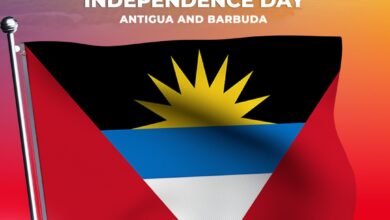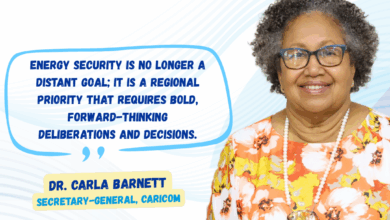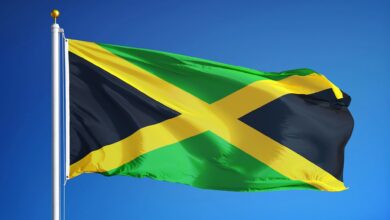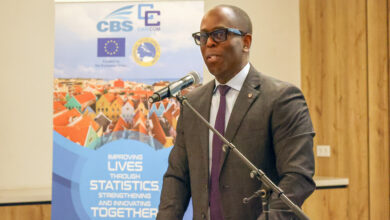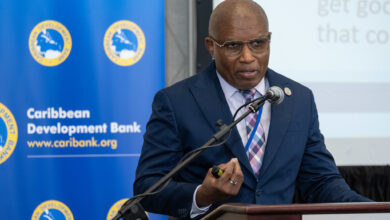CARICOM Secretariat, Turkeyen, Greater Georgetown, Guyana) The Caribbean Community (CARICOM) has been challenged to begin fostering creativity and innovation from the earliest levels of education as a deliberate strategy for the sustainable development of the Region.
At the Opening Ceremony of the Twenty-Fourth Meeting of the Council for Human and Social Development (COHSOD) that focuses on education and culture, speakers honed in on the necessity of such a strategy to mold the ideal Caribbean citizen.
The tone of the Meeting that is themed `Fostering Innovation through Education and Culture’, was set by Senator the Hon, Fazal Karim, Minister of Tertiary Education and Training, Trinidad and Tobago, the Hon. Dr. Frank Anthony, Minister of Culture, Youth and Sport of Guyana, and Ambassador Colin Granderson, Assistant Secretary-General Foreign and Community Relations.
The common thread of their presentations was the crucial role that education and culture could play in encouraging innovation, and the necessity for a new skills set for competitiveness and development.
For Minister Karim, whose address was made via video, what was clear was that “in the increasingly complex global environment in which we operate with economic, social and environmental challenges, the only sustainable path to development is grounded in our ability to be creative, innovative and competitive, implying commitment to knowledge development to all its spheres.”
Among the key components he identified in the quest towards competitiveness was a greater focus on entrepreneurship, an examination of the educational and pedagogic techniques to ascertain whether it was relevant in the current digital milieu, and the development of “muscles” within national education systems for creative and innovative thinking.
In his remarks, Ambassador Granderson said that the Region’s capacity to achieve the levels of competitiveness required for success in the global economy, was, in large measure, dependent on our capacity for innovation in all spheres.
“Capacity for innovation is fuelled by creativity. Fostering creativity from the earliest stages must therefore be a deliberate strategy of our Human Resource Development systems,” said Ambassador Granderson.
The COHSOD, he said, would turn the spotlight on this imperative which was recognized by the Conference of Heads of Government of CARICOM in 1997. That Meeting devoted a special session to Education and Human Resource Development and outlined the vision of the ideal Caribbean citizen.
The Ideal Caribbean citizen is someone who, among other things: is imbued with a respect for human life since it is the foundation on which all the other desired values must rest; is emotionally secure with a high level of self-confidence and self-esteem; sees ethnic, religious and other diversity as a source of potential strength and richness; and is aware of the importance of living in harmony with the environment.
That person should also: have a strong appreciation of family and kinship values, community cohesion, and moral issues including responsibility for and accountability to self and community; an informed respect for the cultural heritage; demonstrate multiple literacies, independent and critical thinking, questions the beliefs and practices of past and present and bring this to bear on the innovative application of science and technology to problems-solving; demonstrate a positive work ethic; value and display the creative imagination in its various manifestations and nurture its development in the economic and entrepreneurial spheres in all other areas of life; develop the capacity to create and take advantage of opportunities to control, improve, maintain and promote physical, mental, social and spiritual well-being and contribute to the health and welfare of the community and country. In addition, the Ideal Caribbean Person nourishes in him/herself and in others, the fullest development of each person’s potential without gender stereotyping and embraces differences and similarities between females and males as a source of mutual strength.
Ambassador Granderson pointed out that the two-day COHSOD Meeting would revisit and review that vision to determine its relevance and the extent to which education and cultural policies, strategies and actions had been geared to addressing the achievement of that goal and offer new directions to deal with emerging challenges and imperatives.
Dr. Anthony acknowledged the need for the Community’s education system to promote innovation and creativity. The Region, he stressed, needed to address the relevant skills set for the knowledge economy to prevent marginalization or exclusion in the current times.
Another dimension to the creation of the ideal Caribbean citizen on which Dr. Anthony touched was the promotion of healthy lifestyles. He called for more action on Non-Communicable Diseases and Sexually Transmitted Diseases such as HIV/AIDS, even as he recognized that dwindling donor resources could undermine previous efforts.
The Opening Ceremony as chaired by Ms. Myrna Bernard, Officer in Charge, Directorate of Human and Social Development (HSD).

